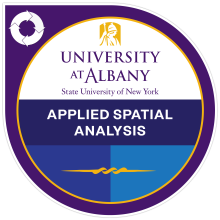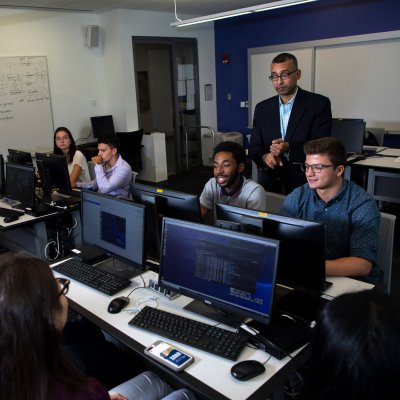Applied Spatial Analysis
Credit(s)
Academic Level
Cost

This microcredential introduces geo-spatial analysis in an applied, hands-on setting. Unlike conventional approaches to data analysis that treat units as independent of each other, spatial analysis redirects our attention to the connections, interdependence and interaction among units.
You will learn how to work with spatial data and appropriate techniques for examining data, programming through use of templates and hands-on reproduction of published findings (replications), coding in the free, open-source programming language R, and communicating research findings effectively to a range of audiences, especially through visualization and mapping.
You will also demonstrate good practices in research transparency and reproducibility. You will engage in critical thinking, challenging ideas related to interdependence and the interactive complexity of social phenomena.
- Module 1: This module introduces key ideas about interdependence, geographic connectivity and working with spatial data. You begin to work with a real-world example in the first session, including working with the data and generating some basic maps and other visualizations of the data.
- Module 2: This module introduces exploratory analytic techniques, including the detection of “hot spots” and other clusters, and develops more advanced visualizations and maps, including maps of statistical findings.
- Module 3: This module introduces explanatory techniques, focusing on diagnostics to inform model selection and the implementation of core spatial models. The module closes with a brief orientation to more advanced models.



